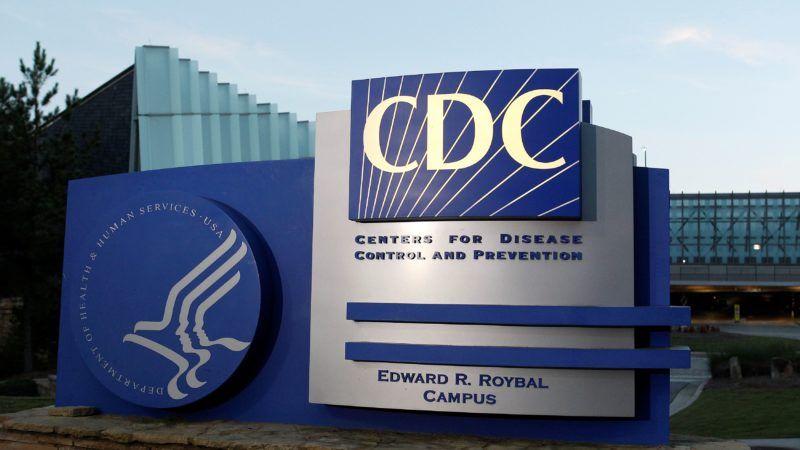A 5th Federal Court Has Struck Down the CDC's Eviction Ban
The latest ruling from the a U.S. District Court in D.C. finds the agency vastly exceeded its powers in banning landlords from trying to evict non-paying tenants.

A judge for the U.S. District Court of D.C. ruled today in a case brought by two realtor associations in Alabama and Georgia that the Centers for Disease Control and Prevention's (CDC) ban on landlords filing to evict non-paying tenants vastly exceeded the agency's powers.
Beginning in September 2020, the CDC has prohibited such evictions on the grounds that they would result in evicted tenants moving in with family and friends or into crowded homeless shelters, potentially spreading COVID-19 along the way.
As a legal justification, the agency cited the Public Health Service Act, which grants federal public health officials the power to make regulations "reasonably necessary" to prevent the interstate spread of communicable diseases.
The CDC's eviction ban proved immediately controversial with property owners, who complained that the policy effectively required them to provide their product for free.
Multiple lawsuits have been filed by landlords against the CDC and the Department of Health and Human Service (HHS) arguing that if the agency could use public health laws to justify an eviction moratorium, then it could justify practically any policy.
It's an argument that proved persuasive with U.S. District Court Judge Dabney Friedrich.
"Though the Public Health Service Act grants the [Health] Secretary broad authority to make and enforce regulations necessary to prevent the spread of disease, his authority is not limitless," she said, writing that that broad authority does not "encompass the nationwide eviction moratorium set forth in the CDC Order."
Friedrich's ruling marks the fifth time that a federal court has ruled against the CDC's eviction ban. Two federal courts have upheld the policy.
"The CDC has absolutely no authority to enforce its eviction moratorium against anyone," said Luke Wake, an attorney at Pacific Legal Foundation. In March, a U.S. District Court in Ohio ruled in favor of the group's challenge to the CDC's eviction ban in the case Skyworks Ltd. vs. CDC. "Today's decision builds on our victory in Skyworks and affirms that landlords should be allowed to use the eviction process and not be compelled to provide housing for free."
Supporters of the eviction moratorium have urged the Biden administration to continue fighting to uphold its eviction ban.
"While this latest ruling is written more starkly than previous ones, it likely has equally limited application impacting only the plaintiffs who brought the case or, at most, renters in the district court's jurisdiction," said Dianne Yentell, president of the National Low-Income Housing Coalition (NLIHC). "The DOJ should immediately appeal the flawed ruling and the Biden administration should continue to vigorously defend and enforce the moratorium."
Ilya Somin, a law professor at George Mason University, writes in The Volokh Conspiracy that, contra Yentell's claims, "it is possible to interpret this ruling as holding that the CDC order is now invalid throughout the country, not just with respect to the parties to the case."
"It is worth noting that the jurisdiction of the [U.S. District Court for the District of Columbia] extends to federal administrative agency rulings throughout the country, and thus is not limited to a specific geographic area (unlike that of most other lower federal courts)," Somin added.
Time will tell how impactful today's ruling is. It nevertheless represents another loss for the CDC and its efforts to push the envelope on the bounds of its powers.
Rent Free is a weekly newsletter from Christian Britschgi on urbanism and the fight for less regulation, more housing, more property rights, and more freedom in America's cities.
Show Comments (22)